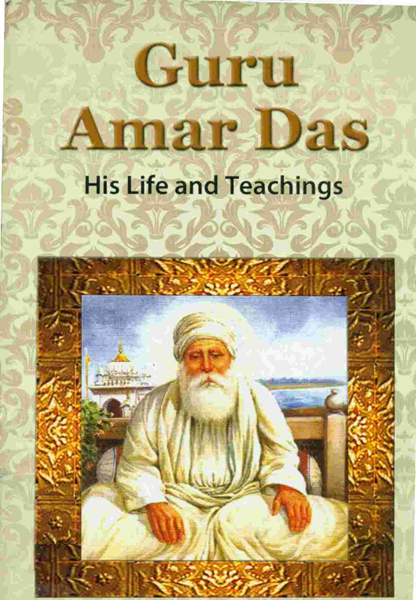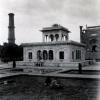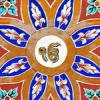Leaderboard
Popular Content
Showing content with the highest reputation on 02/13/2018 in Posts
-
4 points
-
3 points
-
Fateh di saanjh pao...Vaheguru Ji Ka Khalsa Vaheguru Ji Ki Fateh!!! Sada Jai Bhagauti!!! ਅੱਜ ਰਾਮ ਮੇਰੇ ਘਰ ਆਏ...ਮੇਰੇ ਕੁਟੀਆ ਦੇ ਭਾਗ ਜਗਾਏ। ਉਹ ਜਗ ਦਾ ਪਾਲਣਹਾਰਾ ਨਾਲੇ ਦੁਨੀਆਂ ਦਾ ਰਖਵਾਲਾ। ਅੱਜ ਰਾਮ ਮੇਰੇ ਘਰ ਆਏ... Veere, I am well, thank you. I appreicate your concern! Maharaaj Kirpa! This is an extremely accurate observation. I am the Pradhaan of Kesdhari Hindu Sabha, Doaba Region. ਭੈਣੇ! ਦੂਰੋਂ ਸਾਰੇ ਤਮਾਸ਼ੇ ਦੇਖਦਾ ਸ Raam Raam!! Not sure what flavour shardaayi we'll end with this time if I'm completely honest.... ਜੋ ਵੀ ਬੰਨਿਆ...ਔਖਾ ਸੌਖਾ ਪੀਣਾ ਪੈਣਾ Kaamdev and his parrot...in my defence, Maryada doesn't explicitly state that I cannot associate with him! Hello sir, may I interest you in an exotic flavoured glass of shardaayi? Thank you! At least someone still has some loyalty! Haven't done a very good job at corrupting these lot in my absence, they've reverted back to kattarvaadi. ਫੇਰ ਭੀ ਦਿਲ ਹੈ ਹਿੰਦੁਸਤਾਨੀ!3 points
-
You've made some fair points here. Let me answer on how we can stop this though We don't need to go out and start saving the community. All we have to do is save our own home. Each and every one of us. And that, itself, will save the whole community. Don't drink yourself, be an example for your children and other children that look up to you. Don't encourage the behavior, and that means not playing Bhangra tracks that promote alcohols/drugs. Explain the dangers to children at a young age. Scare the s*** out of them, if need be. Just don't let them touch the bottle. Now I know most of us probably don't have children, including myself, but this is something we should be prepared for when we do. The last generation, even the current generation probably can't be saved as they've already started the habit, but its possible to save the next generation. No one needs to be a local superhero to end the alcohol crisis our community faces, just set things right at home, and we should be all good.2 points
-
@GuestSingh Care to explain why you posted my private info on this site and have been trolling my posts this whole time? Why not meet in discourse as invited? I do not believe your behavior is befitting a Sikh, let alone a Khalsa.1 point
-
I wouldnt bother taking this Sukhvirk characteer seriously he's a bit of a troll , I'm pretty sure it's the same guy who trolls on various facebook groups as well .. recently he was trying to argue that "baba vishvakarma ceromonies and pooja " should be allowed in Gurdwaras and are not contradictory to Sikhi...in resoponse to the Leeds Ramgarhia Board issue, also seen him advocating support for sham anand karajs and other anti Sikh behaviour... Wouldnt actually be surprised if this guy wasnt even a Sikh...1 point
-
1 point
-
1 point
-
EARLY YEARS About 481 years ago, in the village of Basarke, about 8 miles from Amritsar, a son was born on May 5,1479, to a trader, Sree Tej Bhan Bhalla and his wife, Rup Kaur. The child was named Amardas. He was the eldest in the family of four brothers. Armadas’ parents had a religious bent of mind and spent a lot of time in religious and charitable activities. In this pious environment, the child developed remarkable interest in holy activities. Encouraged by the kins, he visited saints on the outskirts of the village, and served them with pleasure. In due 'course, Amardas became familiar with the Ramayana, the Mahabharata, the Puranic literature and features of Hindu religion. He grew up to be a young man of religious temperament. Since he was a devotee of Mata Vaishno Devi he ‘visited the pilgrimage places of all faith. Schooling During that time education was imparted by maulvis and mullahs. Due to the predominant influence of Islam classes were held in the mosque. Urdu and Persian were the two languages which were taught, but pandits were engaged to teach Hindi to Hindu students. Even though there is no evidence to suggest that Amardas attended these classes, but traces of Urdu, Persian, Hindi and Sanskrit expressions in Bani composed by the Guru, show his acquaintances with these two languages. Stress was laid on physical education in those days. These habits of childhood were evident even in old age when Bhai Amardas made a conscious effort to start pathshalas for teaching Gurmukhi and Akharas for the physical education. Marriage at the age of about twenty-four he was married to Ram Kaur, daughter of Shri Devi Chand, who belonged to the village of Sankhatra in Sialkot district. Ram Kaur was a God-fearing woman who believed in carrying out religious duties. She proved an apt partner for the Guru. She helped her husband in carrying out social work for the community and even in organizing festivals and ceremonies. The couple was blessed with two sons, Mohan and Mohri, and two daughters Dani and Bhani. SEARCH FOR THE GURU Once his sons grew up Amardas had ample time to pursue his religious activities. Although a man of profound knowledge of religious philosophy, his thirst to gain a better insight into life compelled him to search for a Guru. He adopted various paths in quest of one like fasting, living in the company of sadhus, etc. He even observed the penances performed by the yogis and hermits, attended the sermons and discourses delivered by pandits, and also visited holy men engaged in meditation in solitary caverns. Even though he held them in high esteem and valued their religious activities, they did not appeal to him as a Guru. Meeting with Pandit Bhai Amardas religiously visited Hardwar once a year for the holy dip in the. river Ganges. On one such trip he came in contact with a monk called Brahmachari. Similar interest in religion brought them together. On their 'return journey they stopped at the house of Durga Pandit, in the village of Mehre. When Bhai Amardas was resting Durga Pandit, an astrologer by profession, noticed Padam Rekha, that is lines shaped in the form of a lotus, on the palms and the soles of Bhai Amardas. The learned Pandit wondered at the interpretation of these lines, as the old man of sixty appeared to be a poor pilgrim, while the lines indicated his fate to be that of a Chakravati king or a saint of supreme type. The Pandit spoke out loudly that the rekhas must bring their fruit. The sound woke Bhai Amardas. He smiled at the Pandit's prediction and offered some money as dakshina. Pandit promised to accept dakshina when his prediction would come true. Next day, Bhai Amardas and the Brahmachari left for Basarke. They reached in a couple of weeks. Bhai Armadas’ family welcomed them warmly. The Brahmachari stayed as a guest, and enjoyed the hospitality of Bhai Amardas. One day, the monk asked Bhai Amardas about his Guru who had taught him such wisdom and piety. Amardas was silent for a while, and then said he had no guru but he was in search of one. Instead of guiding or sympathizing with his friend the monk lamented that he had eaten from the hands of a man who had no Guru! Before Amardas could pacify the guest, he left the house without his belongings. This incident greatly troubled Amardas, and it kindled a new desire to find a Guru. The Search for the Guru ends Amardas was troubled by this incident and was unable to find solace for a long time. Though he would carry out various religious rituals and ceremonies dutifully, he still felt dissatisfied and incomplete. His mind was always restless as if desperately seeking something. He felt lifeless. He wanted a Guru, a teacher who could guide him spiritually, and help him resolve the inner conflicts that plagued him. He was looking for peace of mind, and he knew that only a true Guru could show him the right path. One day, as he was lying on his bed, he heard a sweet and melodious voice rendering some beautiful hymns. He woke up with a start. He found himself being drawn to the hymns. He walked towards the voice singing those enchanting hymns. As he went closer and closer, the voice became louder and louder. He had this feeling, this wonderful feeling that his search for solace was coming to an end. As he approached the lake, he found Guru Angad's daughter, Bibi Amro, singing those hymns. He asked her what she was singing and who had taught her such beautiful hymns. Bibi Amro, who used to sing hymns daily after her morning bath, was surprised at the question asked by her uncle in-law. She informed him that they were devotional hymns that had been composed by Guru Nanak, and she had learnt them from her father, Guru Angad. She was made to recite these hymns every day, after her morning bath, as it cleansed the mind and the soul. Amardas knew that he had found his Guru. So deeply moved was he by the holy verses that he could feel that they were the words, the thoughts of the one who would become his spiritual guide for life. He requested Bibi Amro to take him to Guru Angad right away. Touched by his humble request, Bibi Amro arranged a meeting for him with her father. The very next morning, she accompanied Amardas to Khadur, to visit her father. Khadur was a rural area in Amritsar. When Guru Angad was made the second Guru of the Sikhs, he had been asked by Guru Nanak to stay there and establish a settlement in that small district. When they reached the Guru's house," Guru Angad rose to greet the sixty-one-year-old man from his daughter-in-Iaws´ house. But Amardas immediately came forward, went down on his knees and touched Guru Angad's feet, even though he was twenty years his senior. Seeing this, Guru Angad was surprised as was everyone else. But Amardas humbly asked Guru Angad to accept him as his disciple and bless him. He requested the Guru not to think of him as a relative or even as a man older to him in years. Instead, he asked the Guru to take him under his wings and show him the right path. One look at the saintly face of Guru Angad, and Amardas knew that this was the teacher he had been looking for. The angelic face of the Guru was so captivating that Amardas could not take his eyes off him. He felt very peaceful and serene in the Guru's presence. And now that he had found him, he was never going to let go. He pleaded with Guru Angad to accept him as his Sikh. Guru Angad smiled as he noticed his perseverance and keenness. Then he gently lifted him by the shoulders and accepted him as his new disciple. So overjoyed and touched was Amardas, that he began to cry, and thanked Guru Angad for giving him the honor of serving him. Guru Angad then applied the tilak on Armadas’ forehead and welcomed him to the Sikh community. From that day on, Amardas began living in Khadur, devoting himself completely to his Guru's service. He felt rejuvenated and alive as though he had been reborn. He derived great pleasure and satisfaction from serving the Guru in any way he could, and despite his age he never felt tired and weary. He began to look after Guru Angad's needs and requirements personally, and was involved in all the Guru's spiritual activities. He worked all day in the Guru-ka-Iangar, helping out in cooking the food and serving it to the hundreds of people who came to eat. He served everyone with equal love and dedication, regardless of their background. This endeared him greatly to the poor who came there to be fed by him. He loved the daily prayers and would listen intently as the Guru preached to the whole Sikh community. He would wake up very early in the morning to fetch water for the Guru's bath. He never once shirked from his responsibilities, and did all his work with utmost dedication. Life at Khadur Bhai Armadas’ day began before dawn each day. First, he would walk down to the river Beas, about 5 kms away, and fetch water for the Guru. No adverse weather conditions deterred his activities. Later he participated in reciting hymns in praise of God, served the langar, cleaned utensils, and took his simple meal. He stayed at Khadur doing odd services. His duties went on till late in the night. Only when the Guru was comfortably in bed would Bhai Amardas leave for Goindwal. This routine continued for twelve years. SERVICE TO THE GURU There were many occasions where Bhai Amardas proved his selflessness and devotion to his Guru. One such Incident occurred when a very wealthy devotee of Guru Angad came to pay his respects. At the meeting, the visitor presented him with a dress which was made of a very fine material. At that time, Guru Angad had developed a sore in his foot, which was bleeding. While Guru Angad was admiring the dress, a drop of blood happened to stain the cloth. The Guru then asked Bhai Amardas to take it to the washer man and have it cleaned. When the washer man saw the blood stain, he refused to wash it saying that washing would ruin the delicate cloth. When Bhai Amardas heard this, he was really annoyed, as he knew that Guru Angad had indeed taken a liking to that dress. Not knowing any other way, he washed away the blood stain from the dress himself, without any sense of disgust. When it was cleaned, he brought it back to Guru Angad. The Guru who had observed the whole incident was really touched by his humble and selfless act. At this, Bhai Amardas humbly folded his hands and said that by cleaning the cloth of its stain, his mind too had been washed clean of all the impurities. Hearing this, Guru Angad blessed Bhai Amardas. Blessings of Guru Angad In fact, there were many incidents like this that had helped Guru Angad make up his mind about who his real successor would be. He had often put his various disciples to test and each time Bhai Amardas surpassed everyone in his service, devotion and humility. Guru Angad became more and more convinced that Bhai Amardas was indeed the right choice for a Guru. However, the test that finally made the choice clear to all was conducted by the Guru, one stormy night. It was a terrifying night since the wind was blowing wildly and the rain was pouring heavily. No one dared to venture out in such a weather, when thunder and lightning seemed to wreak havoc everywhere. Around this time, Guru Angad asked for some water. He called out to his sons, but none of them heard him. He called out again, but they pretended not to hear. The Guru then shook them and woke them up. He asked for either one of them to get him some water to drink. After the sons got up grumbling about being woken up at an unseemly hour, they found that there was no water in the house. They informed their father about it and were about to get back to bed, when Guru Angad asked them to get the water from the river. The sons almost fell off the bed and expressed their horror at being asked to venture out on a nightlike this! But the Guru persisted, saying that his throat was dry. The sons refused and went back to bed. Bhai Amardas, who had been watching the whole incident, came forward and sought permission from the Guru to fetch the water for him. But Guru Angad refused, saying that he was too old for such a work and he would not allow him to go. But Bhai Amardas would not hear of it, and begged permission to go. And then, touching Guru Angad's feet, he set out to fetch some water. He placed the pitcher on his head and walked towards the river. It was a dark and rainy night and the wind was blowing furiously. Bhai Amardas kept reciting the holy hymns and quickly fined the pitcher on reaching the river. It was so dark that night that Bhai Amardas could not find his way back to the Guru's house. And yet, he moved on while groping in the dark. On the way, he happened to pass by a weaver's house. He could see nothing in the dark, and suddenly, his foot hit against a peg and he fell into the hole in the-weaver's loom. He was hurt by the fall. On hearing the thud, the weaver's wife woke up and came out with a lamp to check what it was. When she saw Bhai Amardas, she immediately recognised him and in a grumbling tone remarked that only Guru Angad could be so insensitive as to send one of his very old disciples out for water on a night like this. This remark angered Bhai Amardas. He would have calmly heard any complaint made against him, but he could not bear to hear anything said against the Guru. He immediately retorted that she must really be out of her mind to speak ill of the Guru. Saying this, he went on his way with his pitcher full of water. When Guru Angad came to know of this incident, he called Bhai Amardas to his side and embraced him. He then openly declared that he was nominating Amardas as his successor. He declared that nobody had all the virtues that were expected of a Guru, except Amardas. He said that only this devotee possessed the qualities of devotion, humility, and selfless service, that made Him worthy of becoming the next Guru. He praised the new Guru for the service he had rendered him, and acknowledged it by conferring the robe of honor, known as 'Saropa' on him. The Guru then blessed his disciple and proclaimed that henceforth, Bhai Amardas would be the home for the homeless, the strength for the weak. He would be the new spiritual leader of the Sikhs. Non-Violence Once there were no rains. The crops withered and the tanks went dry. The zamindars of Khadur approached a bairagi who claimed to have occult powers to bring rains. The bairagi took this opportunity to get rid of his rival, Guru Angad. He agreed to perform only on condition that the Guru should be asked to leave the village. Guru Angad left Khadur immediately. The bairagi performed the rituals but it did not rain. At that time Bhai Amardas was not in Khadur. When Amardas came to know about the incident he was beyond himself with rage. He agreed to help the zamindar on the condition that if he was successful in his mission, then the bairagi should be treated with slaps, shoes, and buffets, and thrown out of the village. The villagers agreed. Bhai Amardas prayed to God, and rain fell cooling the heated earth. The zamindars carried out their promise. Then they went to Guru Angad asking for forgiveness and begged him to return to Khadur. Guru Angad was very unhappy with Bhai Amardas for using his miraculous powers. Such powers according to him intervene in the will of God. Bhai Amardas repented his deed and asked for pardon. He then promised not to use violent means henceforth. The Guru granted pardon, and returned to Khadur. Under Guru Angad, Amardas grasped the spirit of true religion. Once Bhai Amardas, during a course of talks, requested the Guru to reserve the Guru's gaddi for his eldest son, little knowing that he himself was the first choice of the Guru. The Guru replied that only the most deserving would get it. When Guru Angad, the second Guru, foresaw his death, he appointed Bhai Amardas as his successor. He 'sent for five copper coins and a coconut, and washed Amardas with his own hands, put new clothes on him and installed him in the Guru's seat. He placed the five copper coins and the coconut before him and asked Bhai Budha to apply tilak on his forehead. Thus, Bhai Amardas became the worthy successor of the throne of Guru Nanak. Amardas was a tall, sturdy old man-a symbol of love and labor. He had a knot of silver hair on top and white beard flowing down like a beam of moonlight. He was seventy-three years old at the time. He lived in great simplicity save for two single sets of clothes, he gave away all his other possessions. The place where Guru Armadas’ appointment took place is called Thara Sahib. A gurdwara has been built there. THE GURU´S REFORMS Once Akbar camped at Lahore. He stayed there for more than a year. He had a large army with him which had to be fed. As a result, the prices of food grains and eatables went up. When he decided to leave Lahore for Agra, Guru Amardas feared that the prices of food grains will crash and peasants will suffer greatly. To pay land tax would be difficult for them. When Emperor Akbar met the Guru, he pointed out the difficulties of the farmers. Akbar immediately decided not to levy land tax that year. That good deed helped many peasants. Guru's idea of serving food in the community kitchen had a very deep meaning. It was a great leveler between rich and poor, high caste and low caste. All dined together without any distinction. Guru did not encourage the idea of hoarding. The food was cooked for each meal, utensils emptied completely at the end and cleaned before cooking began for the next meal. Community welfare was commended not hoarding. If food was left over then cows, horses, bulls and the buffaloes were fed. If anything, still remained the disciples took it to the river, and feasted the fish with it. Through actions Guru conveyed that food should be eaten for nutrition and health. It should be clean, health promoting and obtained through just and fair means. Equality to Women: Guru Amardas preached against superstitions and social evils. He advocated that no women should come to the sangat with her face veiled. When the king of Haripur visited the Guru, his queens were all veiled. He discouraged this custom openly in the presence of the king. This way he made an effort to remove purdah system among women. Sati Abolished: In those days, sati was a common practice. Women used to burn themselves in the pyres of their husbands. Guru chalked out a vigorous campaign against this practice. He said sati is an insult to human dignity, and should be condemned. Through Guru's efforts women began to receive the respect and honor they deserved. During his tenure as Guru, Amardas made many reforms for the community. They were as follows: one must avoid evil company, one should not be conceited and should not glorify oneself. One should eat and work according to one's capacity. One must give a little of one's earnings in charity. One should associate with virtuous people. Thus, Guru advised clean living, and serving people in a spirit of humility and devotion to God. One day, Bhai Budha felt bad seeing the Guru eat coarse bread, while the people were always feasting on the langar. The Guru replied, Bhai Budha, there is no difference between me and my people. l eat with their mouth whatever you give them. That is my sustenance, and not this coarse bread only. Amardas loved his people and tried very hard to look after them. Spreading of Fragrance. Guru Amardas had given authority and power to one hundred and forty-six of his apostles to go to various parts of the country, and spread the message of the Gurus. Out of the which ninety-four were men and fifty-two were women. The women acted as mothers to the orphans and protectors of many poor girls deserted by cruel husbands. Everyone in need and distress called upon them. Bibi Bhani Bibi Bhani was the youngest daughter of Guru Amardas. From her early childhood, she used to recite the Guru's hymns and sit alone in meditation. Later on, she helped in the Guru's kitchen. Even after marriage she looked after the comforts of her father. Songs for the Lord Guru Amardas contributed nine hundred and seven hymns to the Guru Granth Sahib, all of which were written between the age of seventy-three and ninety-five. Guru Armadas’ achievements during his tenure are considerable. By this time the Sikhs had emerged as a distinctive community. The Guru's teachings were as simple as his way of life. The community was delighted to see Guru Nanak's umbrella over Armadas’ head.1 point
-
1 point
-
1 point
-
Before anyone gets excited about becoming a mod we should allow admin to post minimum requirements so those interested understand criteria of person attributes, panthic interests previous posts, demeanour etc1 point
-
I agree 100% that we all need to sort ourselves first, then our close ones and if everyone done this then positive effect will be massive and widespread. However, this isnt as easy just talking about it, no kaum in the world even sulay are all 100% devout, tbh they probs the most corrupt out the lot if you look how many of them are homo, sessioners etc. our kaum cant be cleansed of sharab nasheh etc, even during Sant Jis peak the majority were still up to puteh kaam. However, what we can do is extend olive branches to our brothers and sisters, show them the beauty of sikhi, become role models ourselves and show the oochah and soochah jeevan of a Gursikh etc. hopefully then they can come towards the path of Sikhi.1 point
-
1 point
-
I had to look it up. Wouldn't she have to be amritdhari to be patit? Girl can't catch a break lol.1 point
-
1 point
-
@TejS @Prokharkoo84 Wow, between the two of you, I think you nailed it. Firstly by controlling our own homes, and leading by strong example. Then from this strong basis reaching out to help those that need it through courage, love, acceptance and truth. As silly as it is, it's like oxygen masks on an airplane. First you secure your mask then you help those near to you. I applaud you both.1 point
-
Vaheguru Ji Ka Khalsa Vaheguru Ji Ki Fateh. Glad things are well. As long as he didn't get a bag over his head in Hindustan. Heh Shukria1 point
-
No one more vile, part time rss ajant and Mr Nihang have a peculiar fascination with the brown stuff, rest of us are mere innocent spectators.1 point
-
1 point
-
1 point
-
1 point
-
Aaww are you suffering from withdrawal symptoms. Koina, when he's back with a vengeance you'll be eating what remains of his salotar, we know where that's been ?1 point
-
Hello penji. When there are troll posts most of us hibernate to do aome Naam jap1 point
-
VJKK VJKF Ji Hmm... MrDoaba has never been well per say... He's just having a break though. Spending his time wisely. Entertaining kaamdeva and his ਤੋਤਾ. I'll pass on your concerns, though I'm afraid he won't hear them for the brown RSS kashera he's managed to stuff in his ears. Hare ਓਮ. On a real though, he's fine. ਏਨੀ ਛੇਤੀ ਨੀ ਖੇੜਾ ਛੁਟਣ ਵਾਲਾ l1 point
-
1 point
-
Not a favorite but I'm hooked to the first shabad. Prabh dori haath tumhare.1 point
-
1 point
-
1 point
-
Another legend, nothing like what we now like to call puratan keertanis. Ras Mano!1 point













